You're not alone if you've been searching for the answer to, “What is YouTube marketing?” The platform is huge, with over a billion users and counting.
And, with so many people using the site every day, there's bound to be a lot of interest in how businesses can market themselves on YouTube. It's no surprise that many businesses are looking to leverage YouTube to reach their target audiences.
In this post, I’ll discuss everything you need to know about YouTube marketing. From what YouTube advertising costs and the best strategies, I’ll cover it all.
But before we get to the main discussion, let’s discuss why YouTube is a relevant platform for your business.
What is YouTube?
YouTube is a video-sharing website where users can upload, view, and share videos. The website has become a popular way to watch and share user-generated videos. From big and small brands to popular artists, everyone can upload videos on the platform.
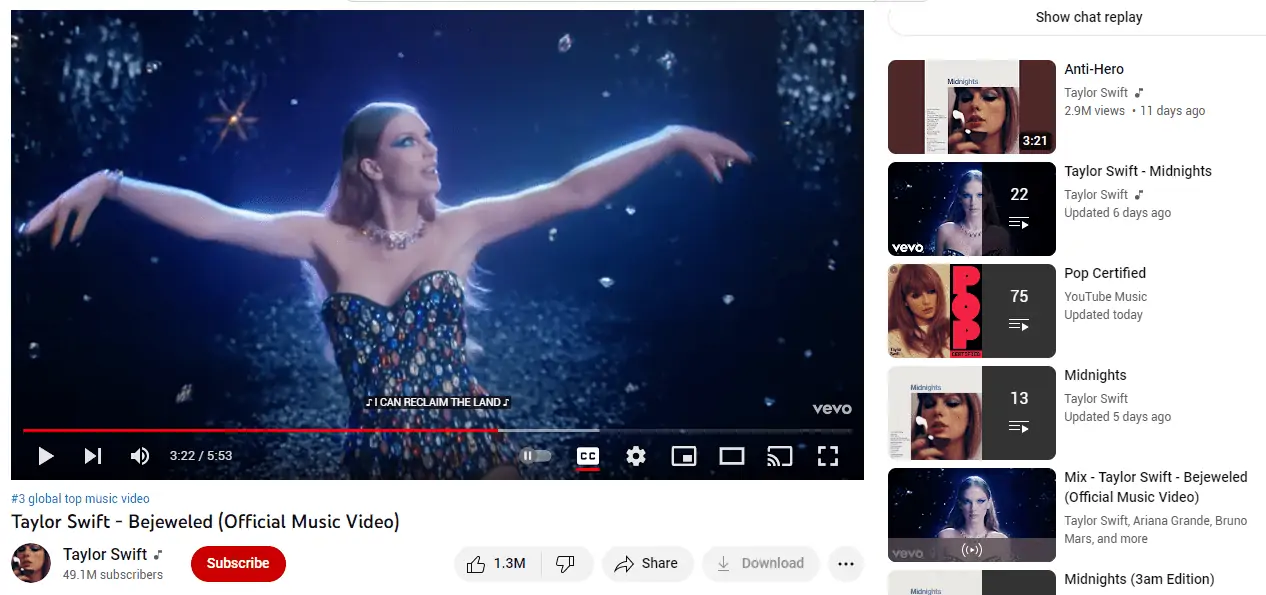
In fact, YouTubers spend a billion hours every day watching videos on the platform.
YouTube allows anyone with a camera and an Internet connection to upload videos.
Once uploaded, the videos can be viewed by anyone with an Internet connection. Users can also rate, comment on, and share the videos.
YouTube has become one of the most popular websites on the Internet. It is ranked as the second most visited website after Google. According to Alexa traffic rankings, YouTube is the third most popular website in the world after Google and Facebook.
What is YouTube Marketing?
YouTube marketing is a process of creating and promoting videos on the YouTube platform with the goal of driving traffic to your website, increasing brand awareness, or generating leads.
YouTube marketing is not just for big businesses. In fact, small businesses can benefit from YouTube marketing as well. Here are some reasons why:
- You can reach a wide audience with your videos. YouTube has over a billion users, which means that your videos have the potential to be seen by a lot of people.
- You can connect with your audience on a personal level. Videos allow you to show your personality and build relationships with your viewers.
- You can generate leads and sales with your videos. If you include call-to-actions in your videos, you can encourage viewers to take action, such as subscribing to your channel or visiting your website.
In a nutshell, YouTube marketing can be a great way to reach a wide audience, connect with your viewers, and generate leads and sales.
Is YouTube Good For Marketing?
Yes, YouTube is the world’s second-largest search engine and the second-most popular social media site. It has over 2.5 billion active users, with over 500 hours of video being uploaded every minute.
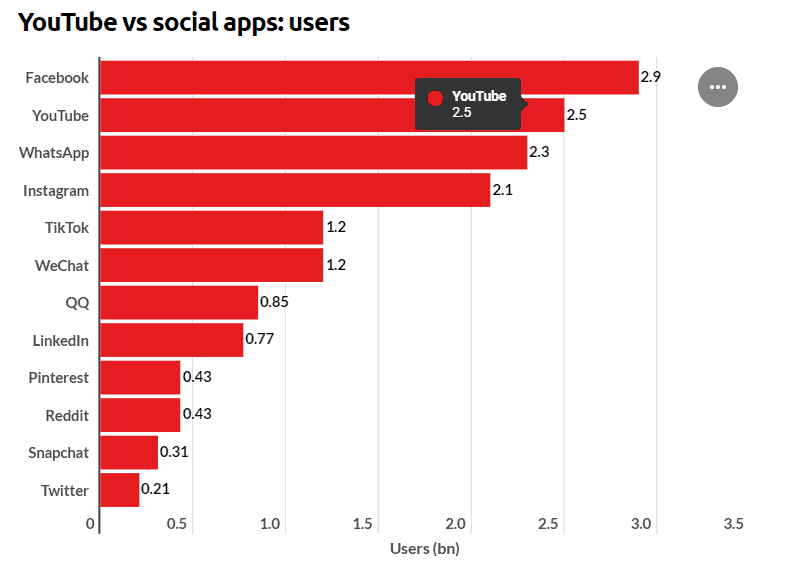
Pretty amazing, right? But how can YouTube directly help you? Here are six ways YouTube marketing can help grow your business:
- You can target a specific audience. With YouTube’s targeting options, you can narrow down who sees your videos by demographics like age, gender, interests, and more.
- You can build trust and credibility. Potential customers are more likely to buy from someone they know, like, and trust. By creating helpful or entertaining videos, you can develop strong relationships with your viewers.
- You can reach a global audience. YouTube is available in 76 different languages and has users all over the world. If you want to reach a global audience, YouTube is a great platform to do it.
Here is a quick overview of leading countries based on the number of YouTube users:
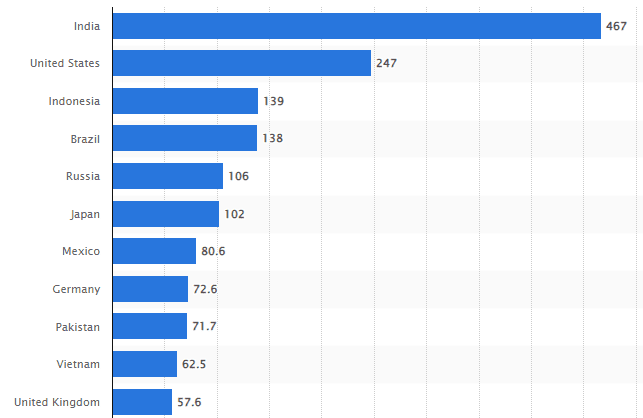
- You can get creative with your marketing. There are endless possibilities when it comes to making creative video content. You can do product demonstrations, how-tos, interviews, customer testimonials, and more.
- You can track your results. With YouTube Analytics, you can see how many people have watched your videos, where they’re coming from, what they’re watching on your channel, and more. This data can help you fine-tune your marketing strategy to get better results over time.
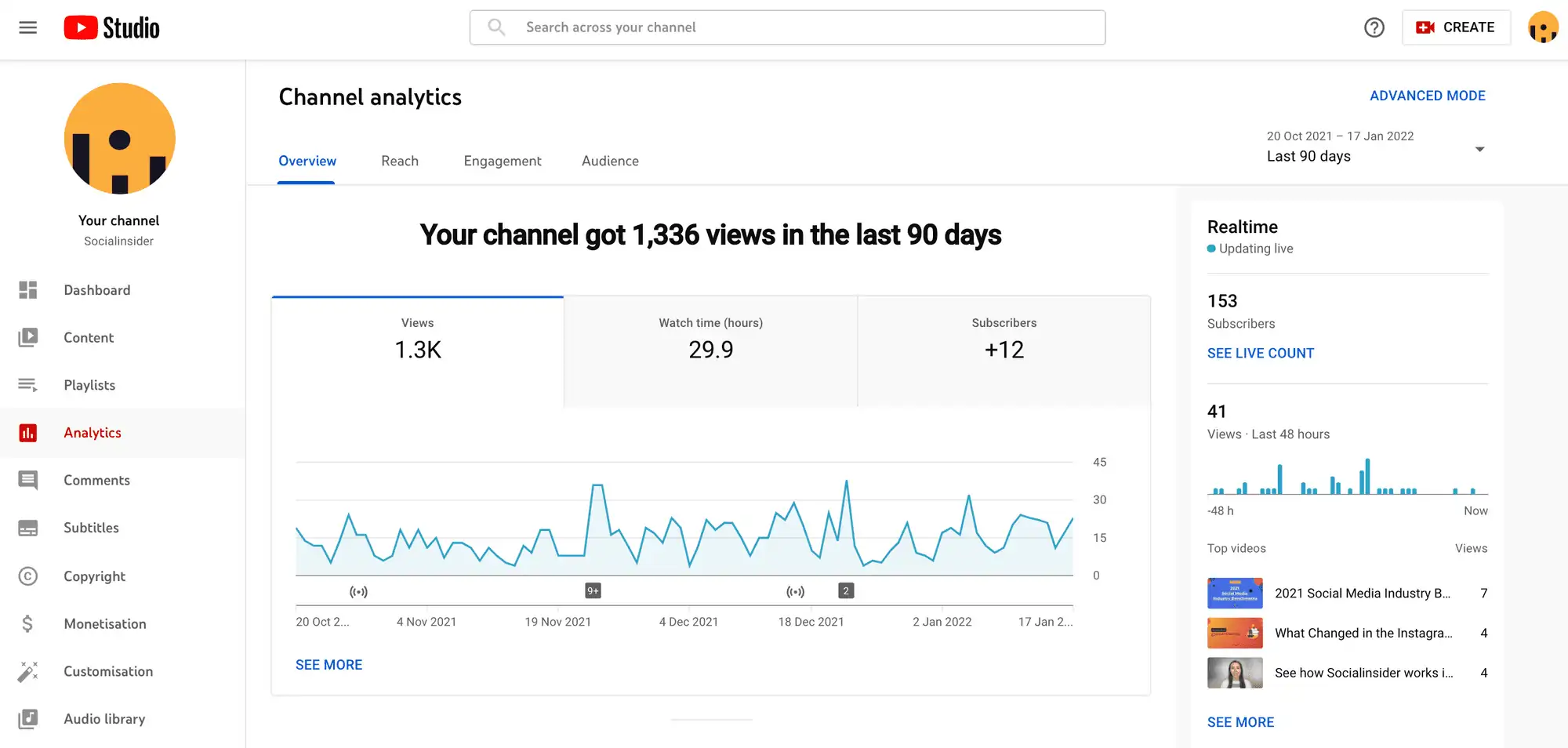
- You can improve your SEO strategy. YouTube videos can help you rank higher in search engine results pages (SERPs).
This is because Google owns YouTube and gives preference to websites that have embedded YouTube videos. Sometimes, the top results on Google are from YouTube.
Here is an example:
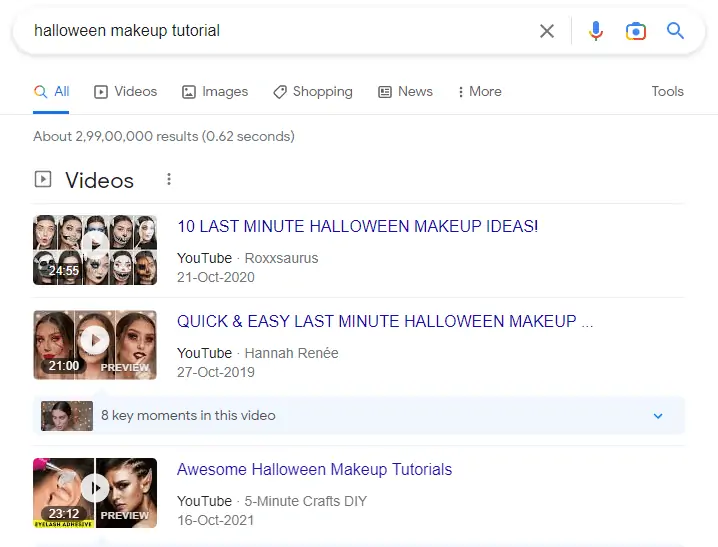
Including keywords in your video titles and descriptions will also help your videos rank higher in SERPs. Make sure to do your research and target keywords that have low competition but are still relevant to your business.
- Creating engaging videos will also help keep viewers on your website longer, which is a signal to Google that your website is worth ranking higher.
As you can see, there are many benefits to using YouTube for marketing. If you use YouTube correctly, it can be a powerful tool to reach a large audience with your marketing message.
You can create engaging videos that teach, entertain, and inspire people. You can also use YouTube to build relationships with potential and current customers.
What is the Main Goal of YouTube Marketing?
There are a few different goals that businesses can have when they approach YouTube marketing:
- Boost Awareness: You can do this by creating videos that show off what you have to offer and then distributing those videos across the internet.
- Lead Generation: To generate leads via YouTube, you can include calls-to-action in your videos and then drive traffic to a landing page.
- Build Better Customer Relationships: You can do this by responding to comments on your videos, engaging with other popular YouTubers, and providing valuable content.
- Boost Sales: By including calls-to-action in your videos and promoting your channel through social media and other online channels, you can encourage viewers to take action.
When you use YouTube as a part of your marketing strategy, you can reach a larger audience, engage potential customers, and increase sales for your business.
Pros and Cons of YouTube Marketing
YouTube marketing can be a great addition to your marketing strategy, but you should weigh the pros and cons before deciding if it’s right for you.
Pros of YouTube Marketing
- You can reach a large audience with little effort.
- Is the second-largest search engine in the world.
- Little cost if done right.
- It’s a great way to show off your products or services.
- You can connect with potential customers on a personal level.
Cons of YouTube Marketing
- It can be time-consuming to produce quality videos.
- It can be difficult to stand out on such a large platform with millions of videos being uploaded every day.
- There is no guarantee that people will watch your videos.
- You may need to invest in some video production equipment.
How Do You Do YouTube Marketing?
Wondering how does YouTube marketing work? We’ve got you covered. Here's a step-by-step guide:
First, create a channel for your business. Make sure to use keywords in your channel name and description so that people can easily find them when they're searching for topics related to your business.
Next, create engaging video content that will appeal to your target audience. Remember to include calls-to-action in your videos, asking viewers to like, subscribe, and share your content.
Finally, promote your YouTube channel through social media and other online channels. You can also run ads on YouTube to reach even more people with your message.
11 Tips to Create a YouTube Marketing Strategy
In this section, let’s take a look at how you can develop a solid YouTube marketing strategy for your business. We’ll also cover some YouTube marketing tips and YouTube marketing insights to make sure you’re going on the right path.
1. Opt For a Brand Account
When you create an account on YouTube, you’ll have two options: Use your personal YouTube account or create a Brand Account. If you have created an account for a business or even if you are a freelancer or influencer, I would recommend you go for the latter.

With a Brand Account on YouTube, multiple people can access your account and manage it. This is really helpful if you have to update your account frequently from various locations.
Another reason why you should opt for a Brand Account is that you’ll get more privacy. Other people at work won’t need to know your personal ID and password.
At a later stage, if you want to expand your business, you can even add multiple business accounts.
When you’re creating a Brand Account on YouTube for marketing your business, it’s important to include relevant information.
You should include the following:
- What your business does in the “About” section
- Profile picture
- Header image
- Website link
- Social media channel links
2. Understand Your Target Audience
Your target audience will be the ones watching your videos. And if you don't know who they are, you won't be able to make videos that appeal to them.
So take some time to understand your target audience before you start making YouTube videos. Who are they? What do they like to watch? What do they want to see from you?
Once you know the answers to these questions, you'll be able to create content that resonates with your audience. And that's when YouTube marketing can really start working for you.
There are a few different ways to go about finding your target audience on YouTube. You can use the search function, look at related channels, or use Google AdWords.
Using the search function is the easiest way to find your target audience. Simply type in what you’re looking for and see what comes up. For example, if you sell shoes, try searching for “women’s shoes” or “men’s shoes.”
If you want to get a little more specific, you can use related results. To do this, open a video in your niche and look at the “From Your Search” section on the right side of the page.
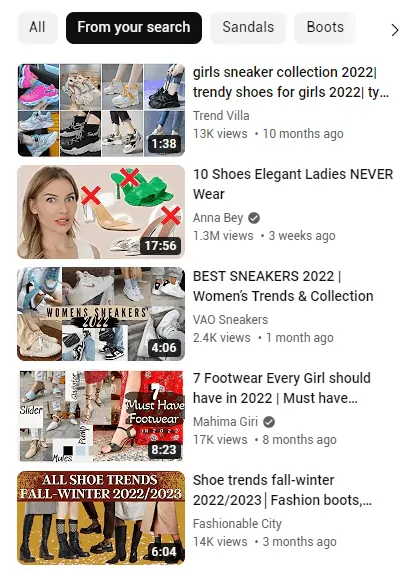
These are usually channels that are similar to the one you’re watching and would be interested in your content.
Finally, you can use Google AdWords to find your target audience. AdWords is a tool that allows you to pay for ads that will show up in search results. You can target your ads by keyword, location, language, and other factors.
3. Research Your Competition
To succeed with YouTube marketing, you need to understand what your competition is doing and how they are reaching their audience. Here are four tips on how to research your competition for YouTube marketing:
Find out who your main competitors are on YouTube. Look at the size of their channels, number of subscribers, and video views.
Study their videos to see what topics they cover and what type of content performs well for them. Identify any gaps in their content that you could fill with your own videos.
Keep an eye on your competitors’ activities by subscribing to their channels and setting up Google Alerts for their brand names. This will help you stay up-to-date on new videos they publish and any changes to their channels.
Engage with your competition’s audiences by leaving comments on their videos and participating in discussions on their channels. This will help you get to know their fans and what type of content they respond to.
4. Create Eye-Catching Thumbnails For Your Videos
As we all know, a picture is worth a thousand words. The same can be said for thumbnails on YouTube videos. By adding an eye-catching thumbnail to your videos, you can increase the number of views and subscribers.

Here are some tips on how to create an effective thumbnail:
- Use high-quality images that are sharp and clear. Blurry or pixelated images will not capture the attention of viewers.
- Make sure the thumbnail is relevant to the video content. Viewers should be able to tell what the video is about from the thumbnail alone.
- Use bright and contrasting colors. This will help your thumbnail stand out from other videos in the search results.
- Add text to the thumbnail. This can be the title of the video or a brief description.
By following these tips, you can create an effective thumbnail that will help increase the number of views and subscribers for your YouTube channel.
5. Look Closely at Popular YouTube Channels
There are many popular channels with millions of subscribers that get tons of likes and comments. Obviously, they are doing a lot of things rights right. You can learn a lot by just watching other YouTube marketing examples.
Some of the things you should look at when watching these channels are the following:
- How they produce their videos
- What kind of content they post
- How often they post new videos
- How they promote their channels
By paying attention to the most popular YouTube videos, you can understand what works on the platform.
6. Focus on Keyword Optimization
Keyword optimization should be a major component of your YouTube marketing strategy. There are several places you can add keywords for your YouTube marketing campaign:
- In the title of your video
- In the description of your video
- As tags on your video
- In the transcript of your video (if you have one)
- In the annotations of your video
- As cards in your video
- On the end screen of your video
Using a mix of these keyword placements will help you reach a broader audience and get more views, subscribers, and leads. Experiment with different combinations to see what works best for you and your business.
7. Add Timestamps to Your YouTube Videos
Timestamps give users a quick idea of what’s going on in the video at a particular minute without having to watch it all. It is a link to the video, so users can click on a timestamp and quickly jump to that part of the video.
Here is an example:
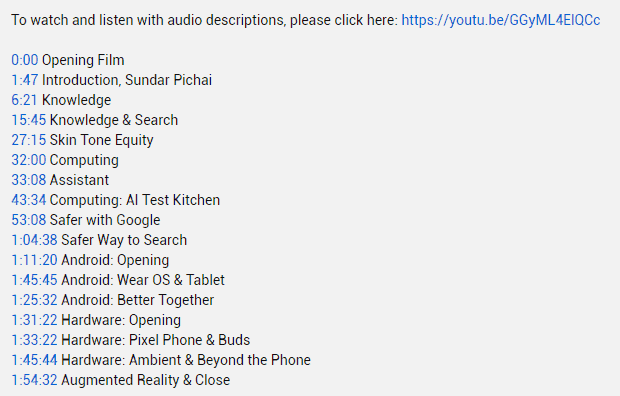
Adding timestamps to your YouTube videos is important for a few reasons. First, it allows viewers to easily find the information they're looking for in your video.
Secondly, it makes your video more accessible to people with disabilities who may need assistance navigating through the content.
Finally, timestamps can help users keep track of where they are in your video so that they can easily come back to specific parts later on.
Overall, including timestamps in your YouTube videos is a good way to improve the user experience for all viewers.
8. Add Detailed YouTube Video Descriptions
When you add a detailed description to your YouTube videos, you're providing valuable information to both YouTube and your viewers.
The more information you can give YouTube about your video, the better they will be able to match it with appropriate search queries. It’s an important step for YouTube video promotions or marketing campaigns.
Here is an example of how Netflix writes YouTube description for their new movie:
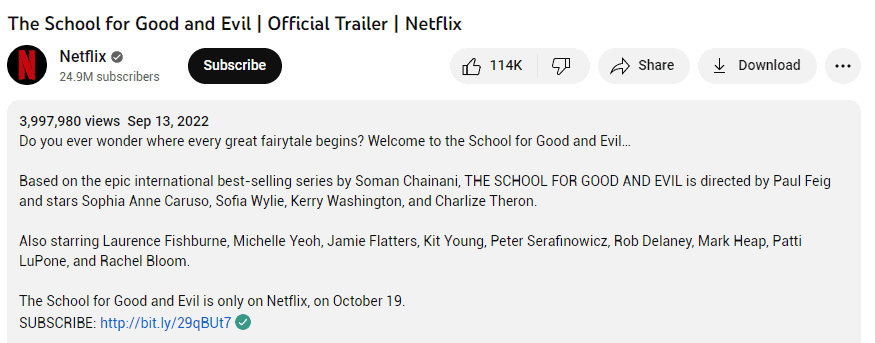
Viewers will also appreciate having more information about the video before they click “play.” A good description can entice a viewer who might not have otherwise clicked on your video.
Think of your video description as an extension of your title. It should provide additional context and details about what viewers can expect from your video.
When writing your description, keep in mind that it's not just a list of keywords – it should be readable and engaging.
YouTube gives you up to 5000 characters for your video description, so you have plenty of room to work with.
Here are a few tips for writing an effective video description:
- Use natural language and avoid keyword stuffing.
- Write for your audience, not YouTube's algorithm.
- Include a call-to-action.
- Be consistent with your brand voice.
- Add links to your product pages or social media accounts.
By following these tips, you can create a detailed and engaging video description that will help your video perform better on YouTube.
So don't skimp on this important step in your video optimization process!
9. Respond to Viewer Comments
If you're looking to grow your YouTube channel, then you need to start responding to comments. It's one of the most effective ways to engage with your audience and build a community around your content.
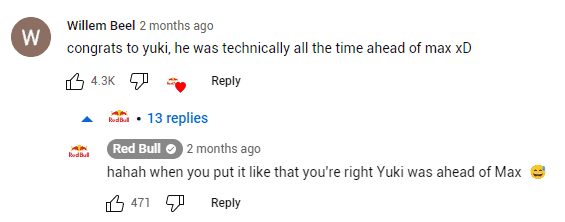
When you respond to comments, you're showing that you care about what your viewers think and that you're willing to engage in conversation with them. This helps to build trust and loyalty, both of which are essential for growing a successful YouTube channel.
Plus, when you respond to comments, you're giving yourself an opportunity to promote your channel and its content.
You can let people know about new videos or playlists, ask them to subscribe, or even just thank them for watching.
So don't neglect the comment section of your YouTube videos – start responding today and you'll see the benefits eventually!
10. Organize Your YouTube Videos Into Playlists
When you have a lot of videos, it can be tough to keep track of them all and ensure that they're being seen by your target audience. This is where playlists come in! You’ll have most likely seen them on popular vloggers’ YouTube channels.
By creating playlists for your YouTube channel, you can group together similar videos and make them easier for viewers to find. Not only that, but playlists can also help boost your video SEO.
Even I have used this feature on my YouTube channel:
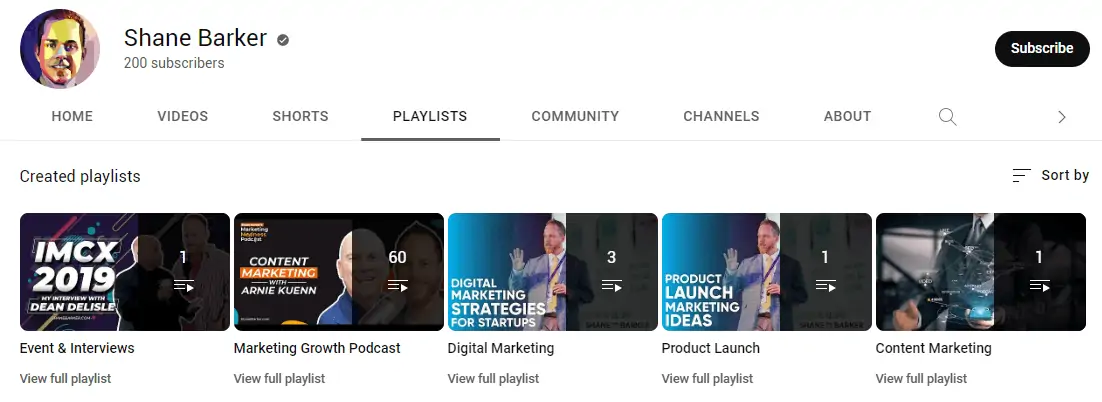
Here are some benefits of using playlists for your YouTube marketing:
- They make it easy for viewers to find what they're looking for
- They help boost your video SEO
- You can use them to promote related products or services
- They're a great way to showcase a series of videos
Organizing your videos into playlists is a great way to keep your channel organized and ensure that your videos are being seen by your target audience.
11. Schedule YouTube Videos For Your Marketing Campaigns
It's important to keep your YouTube channel active, and one way to do that is by regularly uploading videos. This not only helps with SEO but also keeps your audience engaged.
If you're running a marketing campaign, scheduling your videos in advance is a great way to ensure that your content is being released on a regular basis. Plus, it allows you to better plan and strategize your overall marketing efforts.
If you're looking for a way to market your brand, you should consider scheduling YouTube videos on a regular basis. You can use YouTube to reach a wide audience with your marketing message, and it's a great platform for engaging potential customers.
There are several benefits to scheduling YouTube videos as part of your marketing strategy. First, it allows you to control the release of your content.
You can ensure that your videos are released at times when they will have the most impact, and you can avoid releasing too many videos at once, which can overwhelm viewers.
Top YouTube Marketing Tools
There are a few great YouTube marketing tools out there that can help you get the most out of your youtube channel. Here are a few of the top ones:
VidIQ
VidIQ is a software application that helps you to optimize your videos for YouTube. It provides insights on how to get more views and improve your video ranking.
VidIQ also helps you to track your competition and see what they are doing to be successful on YouTube.
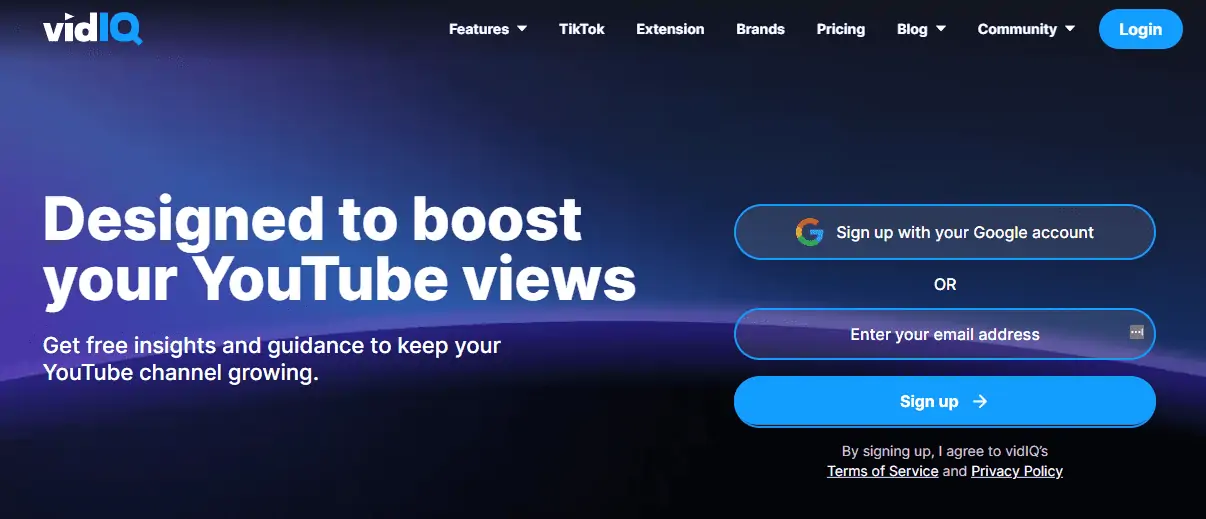
Agorapulse
It's an all-in-one platform that can help with everything from managing your channel and optimizing your videos for SEO. You can also use it to analyze your campaign performance and grow your audience.
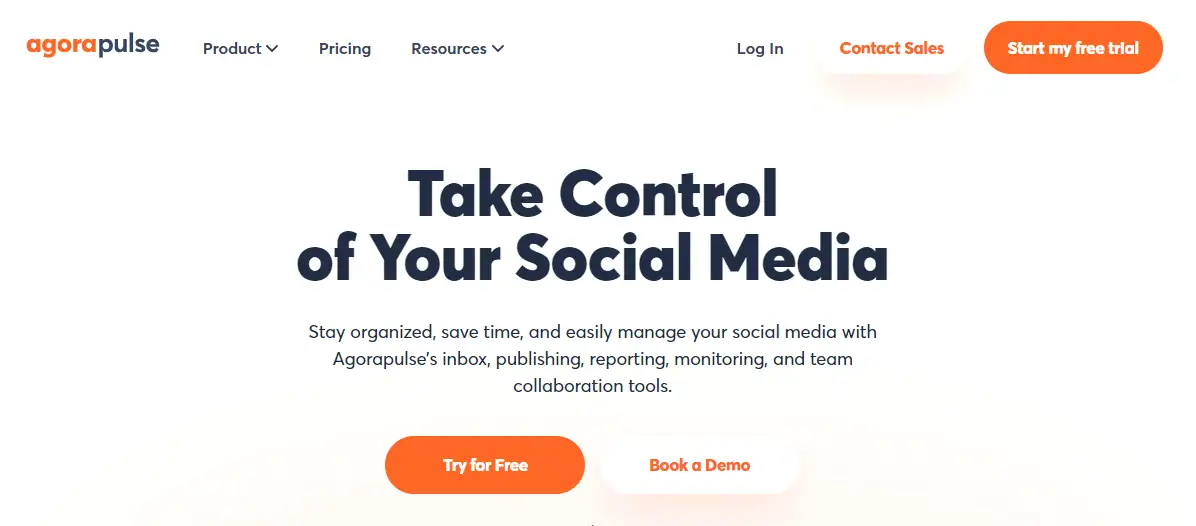
TubeBuddy
TubeBuddy is one of the most popular tools for YouTube marketing. It provides a suite of tools to help you optimize your videos, grow your channel, and measure your success.
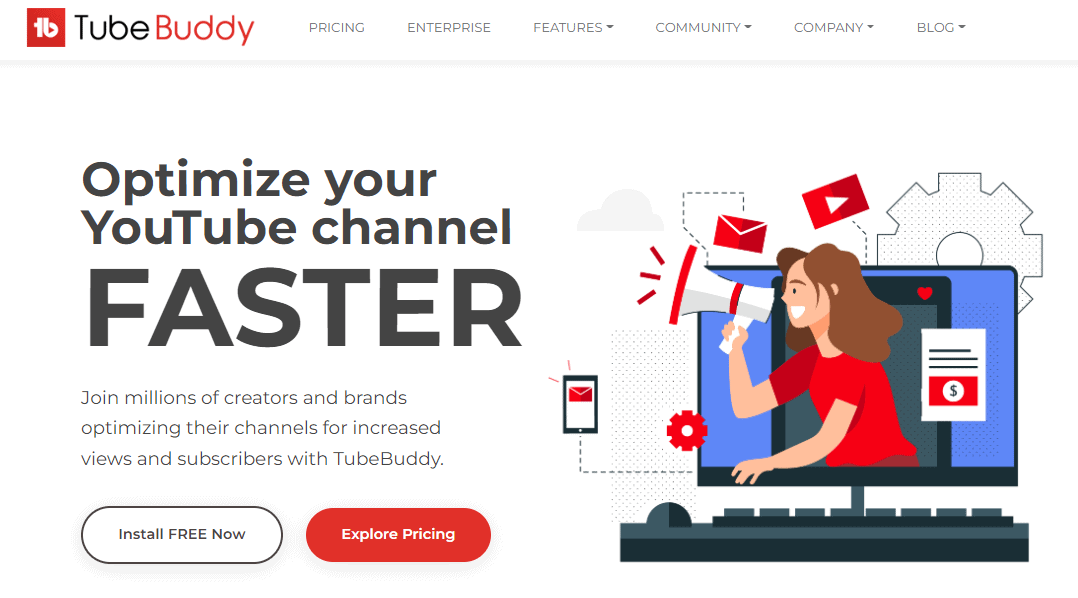
Canva
Canva is mainly a graphic design tool that lets you create amazing visuals. With Canva, you can make eye-catching thumbnails for your YouTube videos in just a few minutes.
What's more, Canva is free to use! So, even if you're on a tight budget, there's no excuse not to create beautiful visuals for your YouTube channel.
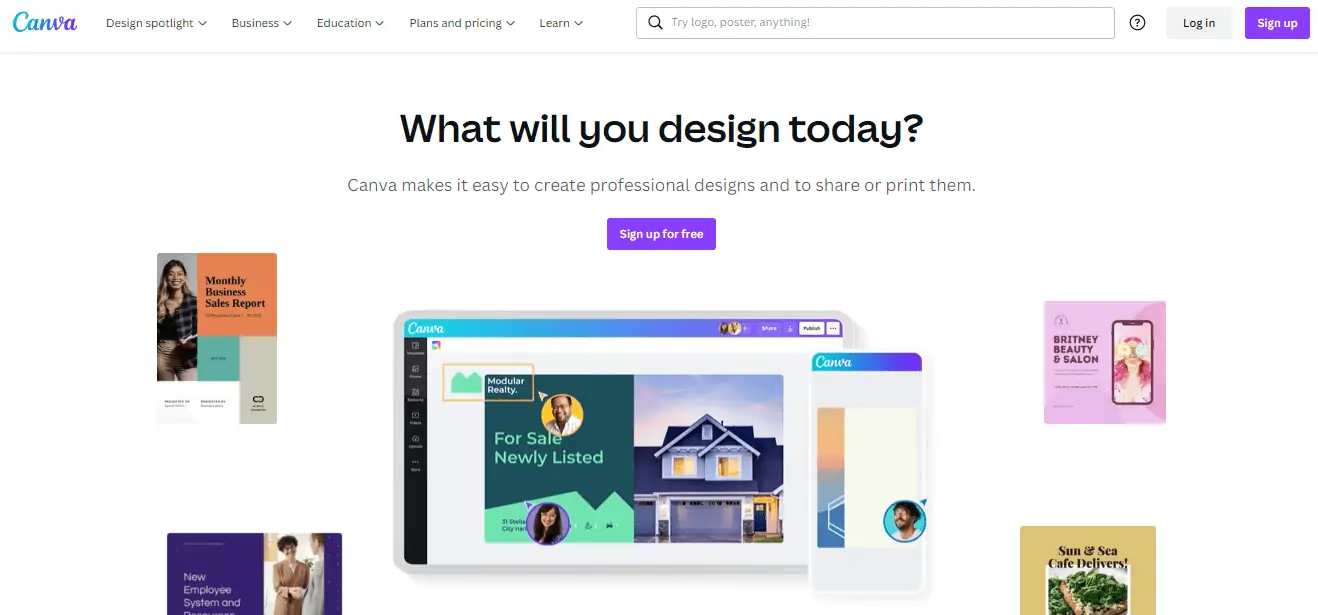
If you want to check out more such helpful tools, please ready my post on YouTube marketing tools. I’ve covered 20 tools along with their pros, cons, and pricing details.
How to Set Up a YouTube Advertising Campaign
In this section, let’s discuss all the considerations you need to take into account while running a YouTube advertising campaign. I’ll try to simplify the process as much as possible so that even absolute beginners can set up their own campaigns.
Step 1: Decide on Your Goal
Before you launch a campaign, decide on your main focus area. Do you want more conversions, awareness, or engagement? This choice will impact which ad strategy and format you should pick at a later stage.
Step 2: Create a New Campaign
Next open Google Ads Manager, and create a new campaign. You can choose specific goals or opt for opt to build a campaign without a goal’s guidance.
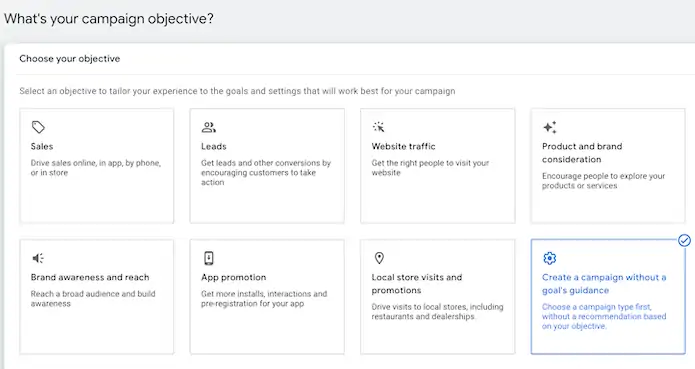
Step 3: Choose a Campaign Type
For YouTube marketing, you should select the “video” option here. Alternatively, you can also choose the “Discovery” option if that aligns better with your goals.
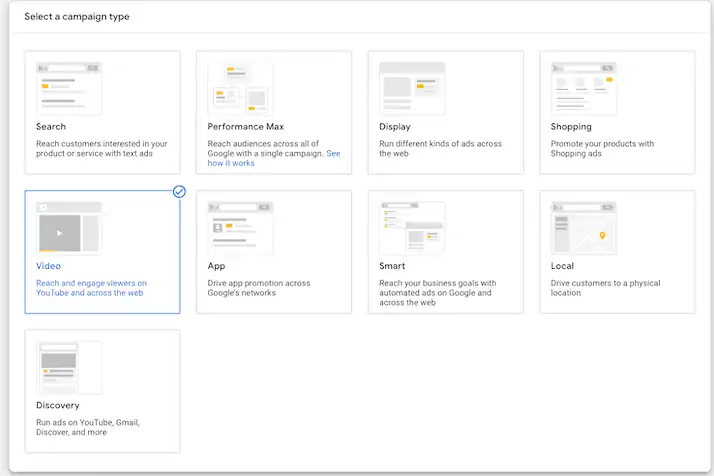
Step 4: Choose Campaign Sub-Type
Based on your campaign goal, you can choose an appropriate sub-type. You can also choose Custom Video campaign if you’d like more options. Keep in mind that it’s possible to change this option even at a later stage in the campaign creation process.
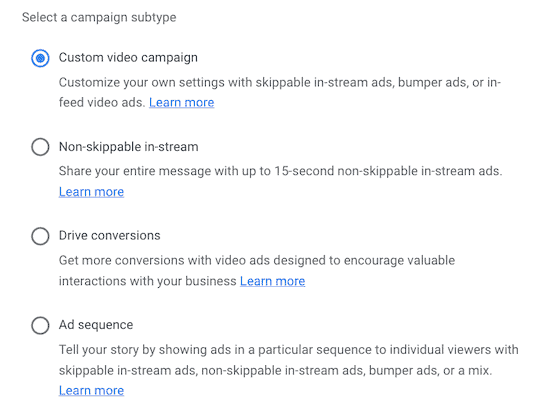
Step 5: Select Your YouTube Bid Strategy
Each format has different bidding strategies for YouTube ads. In this example, I have chosen the “Custom Video” campaign, so my custom options are Maximum CPV and Target CPM.

Step 6: Choose Your Preferred Networks
From the given options, pick your preferred networks. Keep in mind that you might not be able to deselect certain options. If that network is a necessity for the format you’ve chosen, the platform will mark the option for you.

Step 7: Choose Content Exclusion
This option allows you some control over your ad placement. If you don’t want your YouTube ad to appear next to potentially sensitive content, you can choose Limited Inventory.
Alternatively, if you want to explore multiple placements at a lower cost and due to lower competition, you should choose Expanded Inventory.
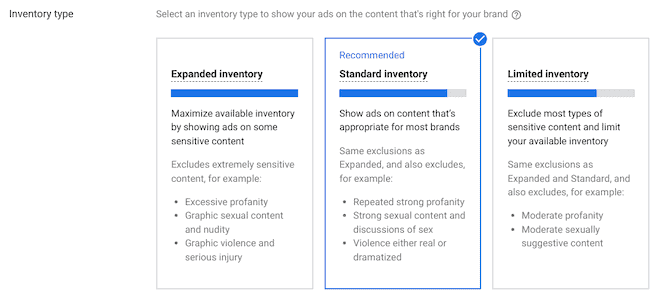
With Standard Inventory, you get the option to exclude certain types of content.
Step 8: Include Related Videos
If you want to increase engagement and grow your YouTube channel, you should include related videos. They can redirect viewers to other content on your YouTube channel. You can also tweak additional settings to schedule ads, cap frequencies, and do more.
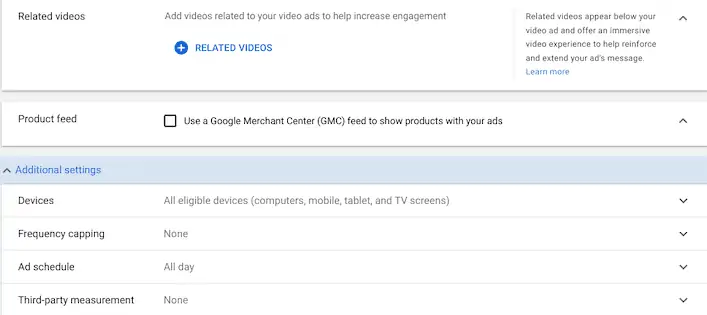
Step 9: Set Up Targeting Options
For YouTube ads, you get two targeting options: People and Content. Through the targeting options in the People section, you can select the demographics and audience segments.
With Content subcategory, you can select options such as keyword targeting, topic targeting, and placement targeting.
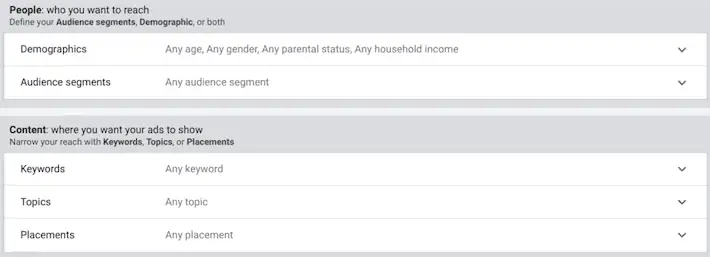
Step 10: Create Your YouTube Video Ad
Before you create a video ad on YouTube, you need to upload it to your channel. If you don’t want it to be available publicly, you can select the option, “Unlisted.”
Depending on the subtype of your YouTube ad campaign, the options you get here will be different.
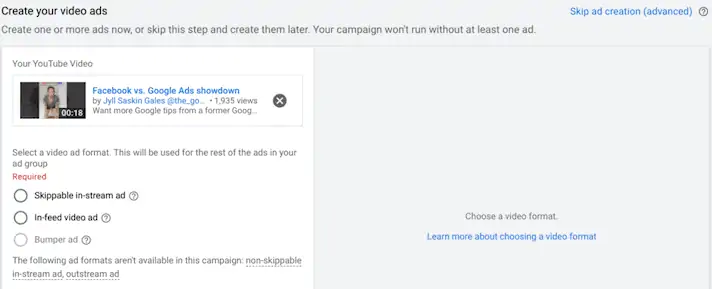
Step 11: Set Up a Bid
That’s it. In the last step, you need to set up your bid. Do your research so that you can come up with a bid that works for your YouTube campaign.

Step 12: Measure the Success of Your Campaign
Based on the objective of your campaign, make sure you select the right metrics to measure your campaign's success. I recommend that you pick one efficiency metric and another reach metric to get a comprehensive picture of your performance.
How Much Does It Cost to Run Ads on YouTube?
There is no absolute answer to this question. Some factors that influence YouTube ad costs include ad formats, bidding, and targeting. However, I can give you an estimate based on my experience with YouTube advertising.
Ads on YouTube can cost approximately $0.10-$0.30 per view. Going by that, the total cost of reaching 100K YouTubers is approximately $2000.
Keep in mind that a view is counted only when a viewer watches an ad for over 30 seconds. If your video ad is shorter than 30 seconds, YouTube counts a view only if a viewer watches the entire video.
Understanding YouTube Analytics
YouTube analytics can be overwhelming if you don’t have someone to walk you through it. In this section, I want to give you a quick introduction to all that is covered in YouTube analytics.
When you click on the Analytics tab in your YouTube account, you will see five main sections: Overview, Reach, Engagement, Audience, and Revenue.
- The Overview section gives you an overview of your channel as a whole, including things like total views, watch time, subscribers gained or lost, etc.
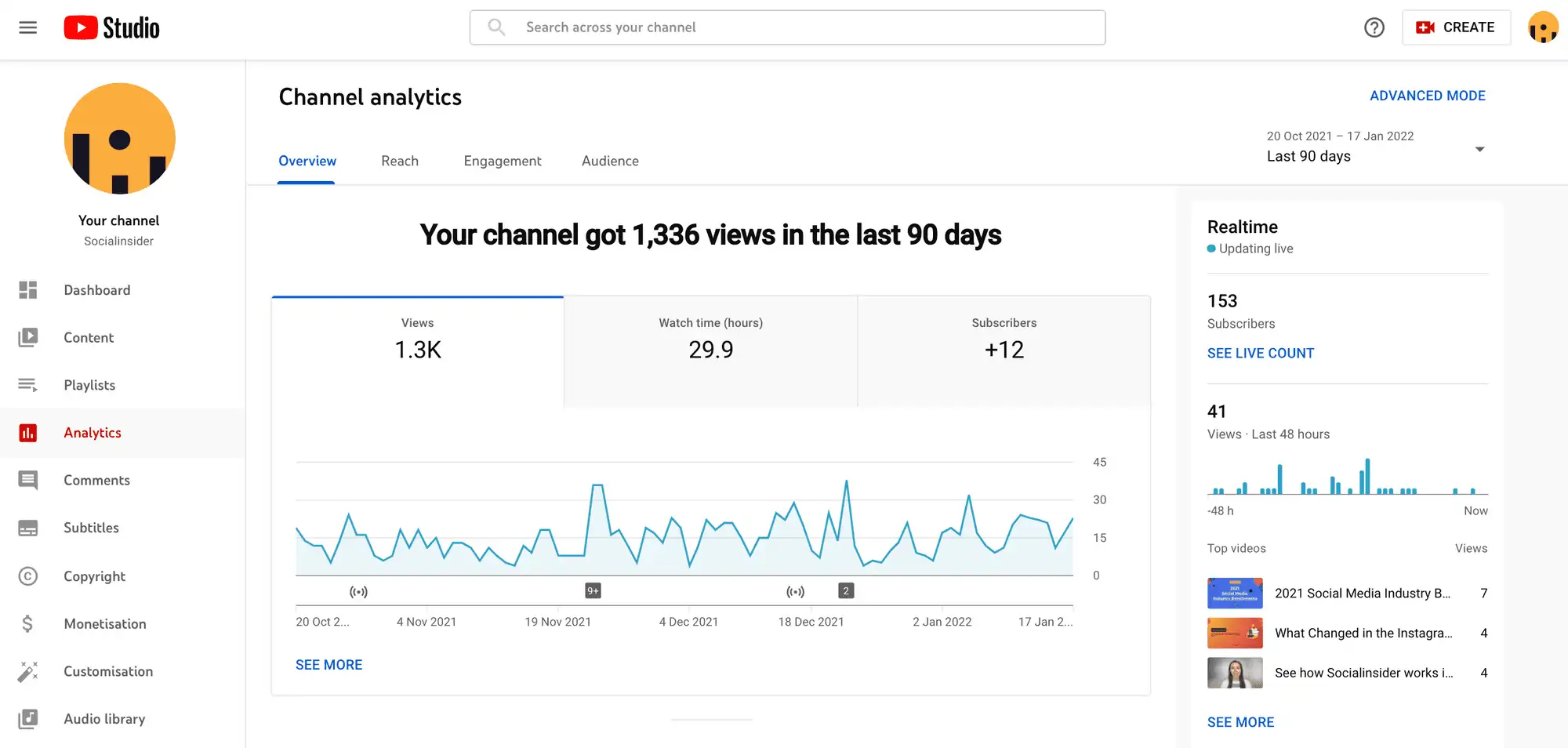
- The Reach section shows you how many people are seeing your videos. You’ll also be able to check your traffic sources, impressions, and CTR.
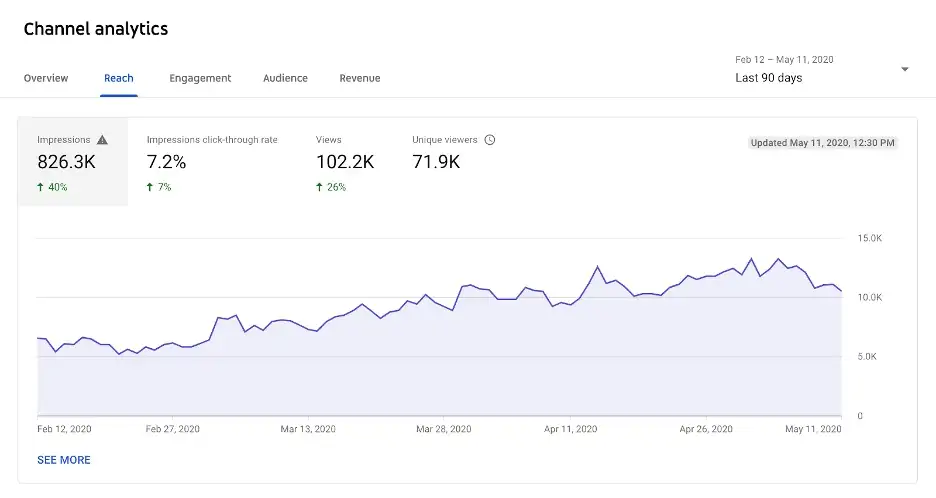
- The Engagement section gives you an overview of how viewers are responding to your videos. You’ll also be able to see key moments for audience retention, shares, likes, dislikes, watch time and average view duration.
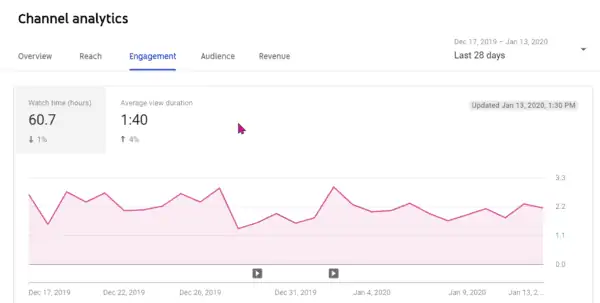
- The Audience section gives you information about who your viewers are, including things like their location, age, gender, etc. You will also be able to check returning viewers, unique viewers, and the watch time for subscribers.
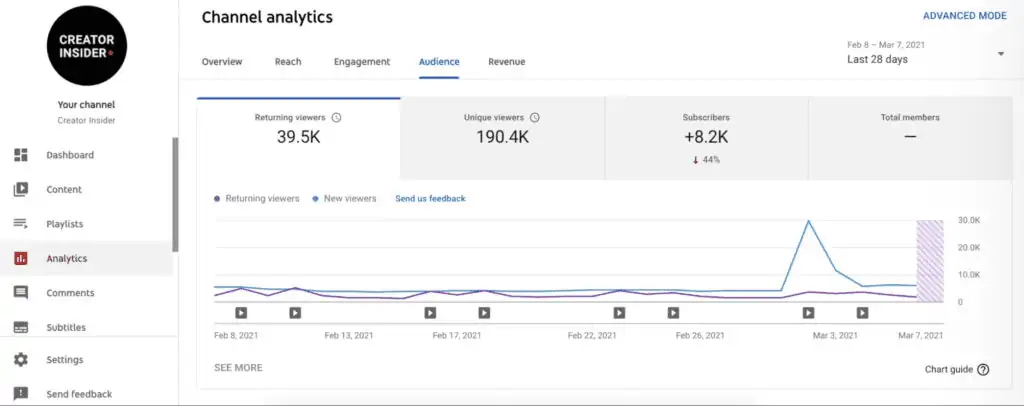
- The Revenue section shows your top earning videos, monthly estimated revenue, transaction revenue, YouTube Premium revenue, and other important information.
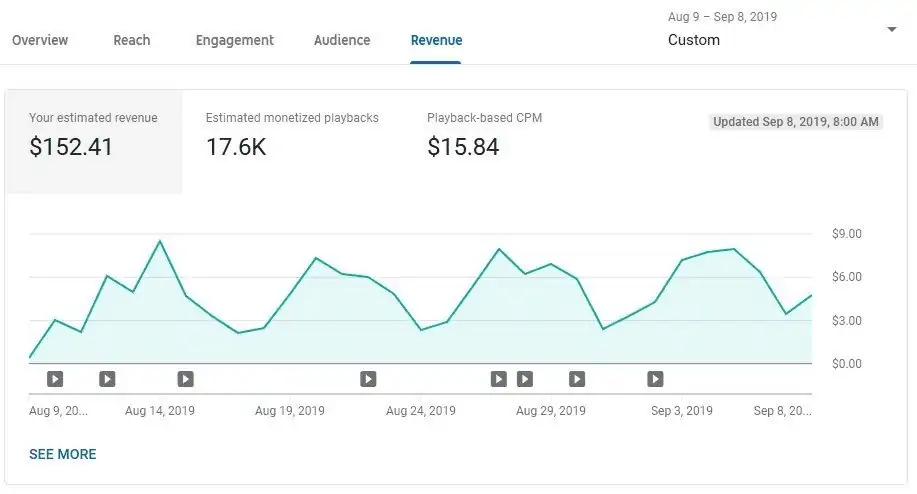
FAQs
1. How do I increase my subscriber numbers?
To increase your subscriber numbers, you can optimize your description, create playlists, and cross promote your channel on other social media channels.
For more tips on this, check out my blog post on increasing subscriber count on YouTube.
2. What are the best times to upload videos on YouTube?
The best time to post on YouTube is between 12 to 3 PM on Thursdays and Fridays.
By posting your videos a little ahead of the peak viewing hour, you can increase the chances of getting more views.
3. Can you pay YouTube to get views?
No, you can not pay YouTube to get more views on your videos. You will have to grow your viewership organically.
4. How do you do SEO optimization for YouTube?
To do SEO optimization for YouTube, you should start with keyword research, title optimization, and description optimization. You can also create playlists to organize similar videos together.
For more tips, check out my post on YouTube optimization.
5. How can you promote a YouTube channel?
To promote your YouTube channel, you can optimize your YouTube videos, and schedule them at regular intervals. You can also leverage the YouTube Community Channel tab to get more engagement.
For more tips, check out my post on best tips to grow your YouTube channel.
Ready to Make the Most of YouTube Marketing?
Now you know the answer to the question of “What is YouTube Marketing?” And you know that small businesses can leverage YouTube marketing by creating engaging videos that tell their story and connect with their audience. By doing so, they can reach a wider audience, build brand awareness, and drive traffic to their websites.
YouTube marketing is an effective way for small businesses to connect with their target audience and promote their products or services.
When done right, it can be a powerful tool that helps them grow their business. So if you’re thinking about starting a small business, don’t forget to include YouTube in your marketing mix.
Thanks for reading! We hope this post was helpful in understanding why should small businesses leverage YouTube marketing.
Do you have any questions related to what is YouTube marketing or how to create your own strategy? Leave us a comment below and we’ll get back to you as soon as possible.

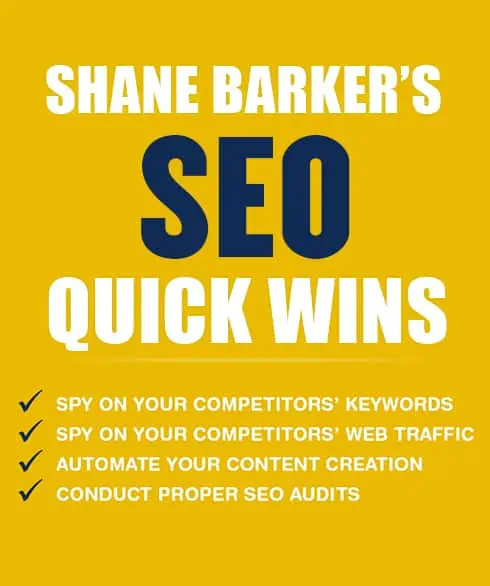
Related Articles
The Right Time to Post on Social Media: A Reliable Guide
7 Best B2C Marketing Channels for Social Media in 2024
How to Grow Social Media Organically: 19 Tools You Need To Use in 2024
31 Best Social Media Marketing Tools in 2024
7 Social Media Analytics Best Practices You Should Follow
19 Best Social Media Management Tools for Marketers in 2024